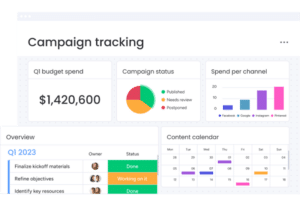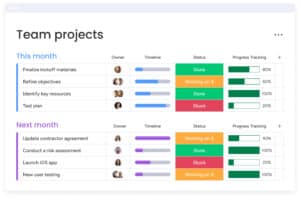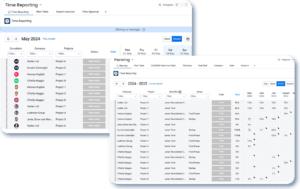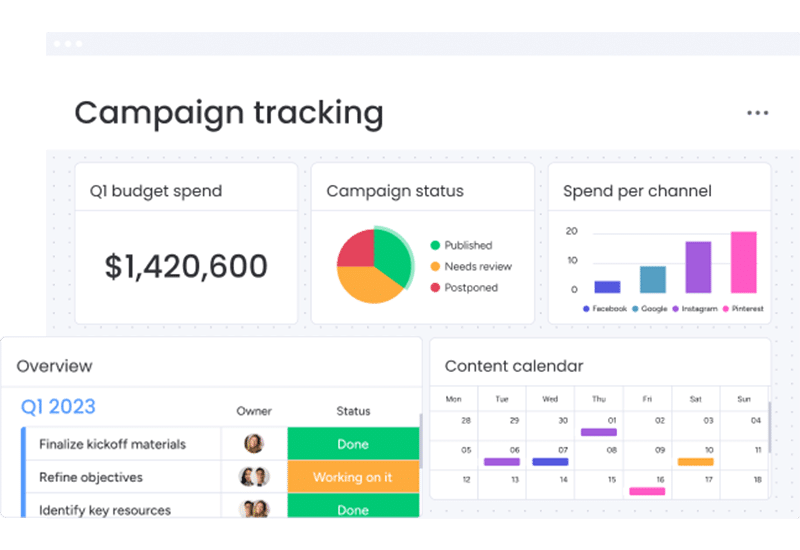Introduction
In today’s competitive marketplace, understanding and managing customer relationships is not just a necessity but a pivotal driver of success. This is where Customer Relationship Management (CRM) systems come into play. It offers businesses powerful tools to streamline their interactions, manage data efficiently, and enhance their operational capacities. But how can CRM benefit a business specifically?
In this article, we will explore the multifaceted benefits of CRM systems. We’ll delve into how they can streamline communication and operations, improve customer relationships and satisfaction, boost sales and marketing efficiency, enhance data analysis and decision-making, and ultimately lead to cost reduction and increased profitability. Whether you are a small business owner pondering the leap into CRM adoption or a seasoned manager looking to optimize existing systems, understanding the advantages of CRM will provide valuable insights to help propel your business forward. Join us as we uncover the numerous ways how CRM can benefit a business, transforming challenges into opportunities for growth and success.
Streamlining Communication and Operations
In the realm of business, effective communication and operational efficiency are critical for success. Here’s how implementing a CRM can transform these crucial areas and demonstrate how CRM can benefit a business.
Centralized Information Hub
One of the primary advantages of a CRM system is its ability to centralize all customer information into a single, accessible hub. This integration allows employees across different departments—be it sales, marketing, or customer service—to access the same updated information anytime, anywhere. For instance, when a salesperson accesses a CRM, they can quickly retrieve a customer’s entire interaction history, understand their preferences, and adjust their sales approach accordingly. This kind of streamlined access not only enhances efficiency but also ensures a consistent customer experience. The ability to centralize data reduces discrepancies and duplications. In turn, this ensures that the information is accurate and current, thereby directly addressing how CRM can benefit a business by keeping everyone on the same page.
Enhanced Communication Channels
A CRM system doesn’t just store information. It also integrates various communication platforms, allowing for seamless interactions with customers across multiple channels. Whether it’s through email, social media, or instant messaging, CRM systems can help manage all these communication streams in one place. This integration ensures that no message slips through the cracks and that the customer’s journey is smooth and uninterrupted.
Additionally, CRM systems often feature automation tools that send real-time updates and alerts to staff about important customer activities or milestones. For example, if a customer submits a query or complaint, the CRM system can automatically alert the relevant team members. As a result, this ensures a swift response that may lead to higher customer satisfaction and retention. This proactive communication setup is a clear illustration of how CRM can benefit a business by making every interaction more timely and contextually relevant.
By enhancing the efficiency and effectiveness of communication and operational processes, CRM systems play a pivotal role in transforming how businesses interact with their customers and manage internal workflows. These changes not only improve daily operations but also foster a more connected and responsive business environment.
Improving Customer Relationships and Satisfaction
Improving customer relationships and enhancing satisfaction is crucial in retaining loyal clients and attracting new ones. CRM systems are instrumental in achieving these goals. Furthermore, this showcases how CRM can benefit a business by nurturing deeper connections with its customers.
Personalized Customer Interactions
CRM systems excel in gathering and analyzing data from various customer interactions. This allows businesses to tailor their communications and offerings to meet the specific needs and preferences of individual customers. This personalization can dramatically enhance the customer experience, making clients feel valued and understood. In turn, this boosts loyalty and satisfaction.
For example, a CRM system can segment customers based on their purchase history and browsing behaviour. In turn, this enables companies to send personalized email campaigns offering special deals on products they are likely to be interested in. This targeted approach not only increases the effectiveness of marketing efforts but also demonstrates a keen understanding of customer preferences, a direct reflection of how CRM can benefit a business.
Proactive Service Delivery
Proactive service delivery is another significant advantage offered by CRM systems. By analyzing customer data and past interactions, businesses can anticipate customer needs and potential issues before they become a problem. This anticipatory approach allows companies to address concerns proactively and improve the overall customer experience.
CRM tools enable service teams to monitor customer satisfaction levels through feedback and service usage patterns. This allows them to offer solutions and support proactively. For instance, if a CRM detects that a customer frequently encounters issues with a service at a certain stage, the service team can reach out with helpful advice or an improved offer before the customer contacts them. This proactive communication not only solves problems before they escalate but also shows the customer that the business is dedicated to their satisfaction. As a result, this underlines how CRM can benefit a business by fostering a sense of trust and reliability.
By leveraging CRM systems to personalize interactions and deliver proactive service, businesses can significantly enhance customer relationships and satisfaction. This strategic use of technology helps retain existing customers and attracts new ones looking for a superior customer experience. These efforts collectively contribute to a robust business model where customer satisfaction drives growth and profitability.
Omnitas Newsletter
Sign up for our monthly newsletter to stay up-to-date on our latest blog articles, videos and events!
Thank you!
You have successfully joined our subscriber list.
Boosting Sales and Marketing Efficiency
Efficient sales and marketing processes are key to accelerating business growth and profitability. CRM systems play a pivotal role in enhancing these areas by automating tasks and enabling targeted strategies, clearly demonstrating how CRM can benefit a business through improved operational efficiency and strategic insights.
Streamlined Sales Processes
CRM systems automate numerous sales tasks, such as lead scoring, contact management, and follow-ups, which significantly streamline the sales process. Automation not only reduces the time sales teams spend on administrative tasks but also helps them focus more on closing deals and building relationships with clients. This results in a shorter sales cycle and higher conversion rates.
For example, automated lead scoring provided by CRMs helps sales representatives prioritize leads that are most likely to convert, based on their interaction with the business’s digital assets. This means that sales teams can more effectively allocate their time and resources to nurturing high-potential leads. Ultimately, this leads to increased sales efficiency. This targeted approach is a direct indicator of how CRM can benefit a business by making its sales operations more productive and results-driven.
Targeted Marketing Campaigns
CRM systems enhance marketing efforts by providing detailed insights into customer preferences and behaviours. This data allows for the creation of highly targeted marketing campaigns that speak directly to the needs and desires of specific customer segments. By using CRM data to segment the customer base, marketers can design personalized campaigns that are more likely to resonate with recipients. In turn, hopefully improving engagement and conversion rates.
For instance, a CRM can track the purchase history and online activity of customers. As a result, this enables marketers to create custom promotions for products that individual customers have shown interest in. This capability of delivering personalized content not only maximizes the impact of marketing efforts but also significantly enhances customer satisfaction and loyalty. This precise, data-driven approach to marketing is a crucial example of how CRM can benefit a business by optimizing marketing resources and increasing the effectiveness of promotional activities.
By boosting both sales and marketing efficiency through streamlined processes and targeted campaigns, CRM systems demonstrate their critical role in fostering a more dynamic and responsive business environment. These improvements not only lead to higher productivity and better resource allocation but also ensure that businesses can adapt quickly to changing market conditions and customer needs. This further reinforces the overall strategic advantage provided by CRM technology.
Enhanced Data Analysis and Decision Making
In the data-driven age, the ability to quickly interpret and act on information is a significant competitive advantage. CRM systems are integral to enhancing business intelligence and supporting better decision-making. This illustrates how CRM can benefit a business by leveraging data to its full potential.
Comprehensive Analytics Tools
CRM systems are equipped with advanced analytics capabilities that enable businesses to delve deep into their customer data and extract meaningful insights. These tools can perform complex data analysis tasks, such as sales forecasting, customer behaviour analysis, and market trend prediction. They equip decision-makers with the knowledge to plan strategically and react promptly to market changes.
For instance, sales forecasting tools within CRM systems allow businesses to predict future sales volumes based on historical data, current market trends, and customer purchase patterns. This predictive power enables managers to make informed decisions about resource allocation, budget planning, and strategic directions. The capacity to anticipate future business scenarios is a clear demonstration of how CRM can benefit a business by ensuring that leaders can steer their operations with confidence and precision.
Reporting and Visualisation Features
Beyond raw data analysis, CRM systems also provide robust reporting and visualization tools that help transform complex data sets into clear, actionable insights. Customizable dashboards and interactive reports allow users to monitor key performance indicators (KPIs) at a glance and track changes in real time, facilitating quick adjustments to business strategies.
An example of this in action can be seen in how marketing teams use CRM dashboards to monitor campaign performance across different channels and customer segments. These visual tools allow teams to see which strategies are working and which are not. In turn, this enables them to optimize their efforts for better results. The ability to rapidly adapt to data feedback underscores how CRM can benefit a business by not just collecting data, but making it directly actionable. This enhances both strategic agility and operational efficiency.
By harnessing the power of enhanced data analysis and sophisticated reporting capabilities, CRM systems provide businesses with the insights needed to make smarter, data-driven decisions. This not only minimizes risks but also maximizes opportunities, driving businesses towards more effective strategies and improved outcomes. These capabilities are crucial in a fast-paced business environment where making the right decisions at the right time can dictate the difference between success and failure.

Cost Reduction and Increased Profitability
One of the most compelling arguments for the adoption of CRM systems is their ability to reduce costs and enhance profitability. By automating routine tasks and improving efficiency across various business processes, CRM demonstrates how it can benefit a business through financial gains and operational streamlining.
Efficiency Gains from Automation
CRM systems automate many day-to-day administrative tasks such as data entry, lead management, and customer support. In turn, this frees up staff to focus on more strategic activities that can drive business growth. This reduction in manual workload not only decreases the likelihood of human error but also speeds up processes. As a result, significant cost savings can be made over time.
For example, automated workflows in CRM systems can manage follow-ups with potential leads, schedule appointments, and send out customer satisfaction surveys without any manual intervention. These automated processes ensure that no lead is missed and that customer engagement remains high, all while reducing the labour required to manage these tasks. This is a key aspect of how CRM can benefit a business—by reallocating resources from repetitive tasks to areas that generate higher returns.
ROI from CRM Implementation
Investing in CRM technology often yields a high return on investment through increased sales efficiency, enhanced marketing effectiveness, and reduced operational costs. Numerous studies and business reports have documented the ROI of CRM implementations, showing improvements in customer retention, higher conversion rates, and lower churn rates—all contributing to better financial performance.
Businesses that leverage CRM data to refine their sales strategies often see a boost in sales productivity by targeting the right customers with the right offers at the right time. Additionally, CRM systems help in identifying up-sell and cross-sell opportunities, further increasing revenue potential. The ability to track and measure the direct financial impact of CRM on these areas vividly illustrates how CRM can benefit a business not just in terms of operational metrics, but also in clear financial terms.
By providing tools for efficiency and a clear pathway to higher profitability, CRM systems prove themselves as invaluable assets for businesses aiming to optimize their operations and maximize their financial outcomes. These systems not only reduce costs but also enhance revenue generation capabilities, demonstrating a dual benefit that is vital for sustainable business growth. Through careful implementation and strategic use of CRM, businesses can achieve a balance of cost efficiency and revenue enhancement that propels them towards financial success.
Overcoming Challenges in CRM Implementation
While the benefits of CRM systems are significant, the implementation process can present various challenges. Recognizing and addressing these obstacles is essential for successful deployment and operation, further illustrating how CRM can benefit a business by ensuring the technology is fully leveraged.
Common Pitfalls and How to Avoid Them
Implementing a CRM system involves significant changes to business processes and can encounter resistance from staff, along with technical hitches. Common pitfalls include inadequate training, poor data quality, and a lack of alignment with business objectives. To avoid these issues, businesses should focus on comprehensive training programs that are tailored to the specific needs of different teams. Ensuring that all users are comfortable with the system and understand its benefits can greatly enhance adoption rates.
Additionally, maintaining high data quality is crucial for the success of any CRM system. This means regular audits of the data entered into the system, stringent data entry standards, and clear protocols for updating and maintaining this information. Accurate and timely data is the backbone of effective CRM usage and is critical in preventing the degradation of user trust and system efficacy.
Choosing the Right CRM for Your Business
The variety of CRM systems available today means that businesses can choose one that best fits their specific needs and goals. However, selecting the appropriate CRM can be daunting. Factors to consider include the size of the business, industry-specific features, scalability, ease of use, integration capabilities with other tools, and the level of customer support provided by the vendor.
It is advisable for businesses to conduct a thorough needs assessment and involve key stakeholders in the CRM selection process. Demonstrating how CRM can benefit a business through a tailored approach, ensures that the chosen system aligns well with both current and anticipated business requirements. Furthermore, opting for a CRM with robust integration capabilities allows for a smoother transition and more comprehensive data analysis, enhancing the overall impact of the system on the business.
By proactively addressing these challenges and making informed decisions during the CRM selection and implementation phases, businesses can maximize the effectiveness of their CRM systems. This not only smooths the adoption process but also ensures that the system works in harmony with existing business processes, thereby maximizing the benefits and minimizing disruptions. Successfully overcoming these hurdles underscores the strategic value of CRM and cements its role as a crucial tool for business growth and efficiency.
Conclusion
Throughout this exploration of how CRM can benefit a business, we’ve seen the transformative potential of CRM systems in streamlining operations, enhancing customer relationships, boosting sales and marketing efforts, providing powerful data insights, and significantly improving profitability. The advantages are clear, from operational efficiencies and cost reductions to strategic decision-making and increased customer satisfaction.
However, the success of a CRM implementation largely depends on choosing the right system that aligns with your specific business needs and ensuring it is adopted smoothly across your organization. Overcoming the initial challenges of CRM integration is crucial for leveraging its full potential.
As the number one partners of monday.com, we at Omnitas are experts in tailoring their CRM solutions to meet the unique demands of your business. Our deep expertise not only helps in cutting down the implementation costs and time but also ensures that the CRM system is a perfect fit for your business strategy and processes.
Are you ready to harness the full power of CRM to transform your business? Contact us below to discover how we can tailor monday.com’s CRM to meet your specific needs, ensuring a seamless integration and maximized ROI. Let’s work together to make your business more efficient, insightful, and customer-focused.
If you found this blog post useful, make sure to sign up for our monthly newsletter below. Stay in the loop regarding all things business efficiency and automation!
























